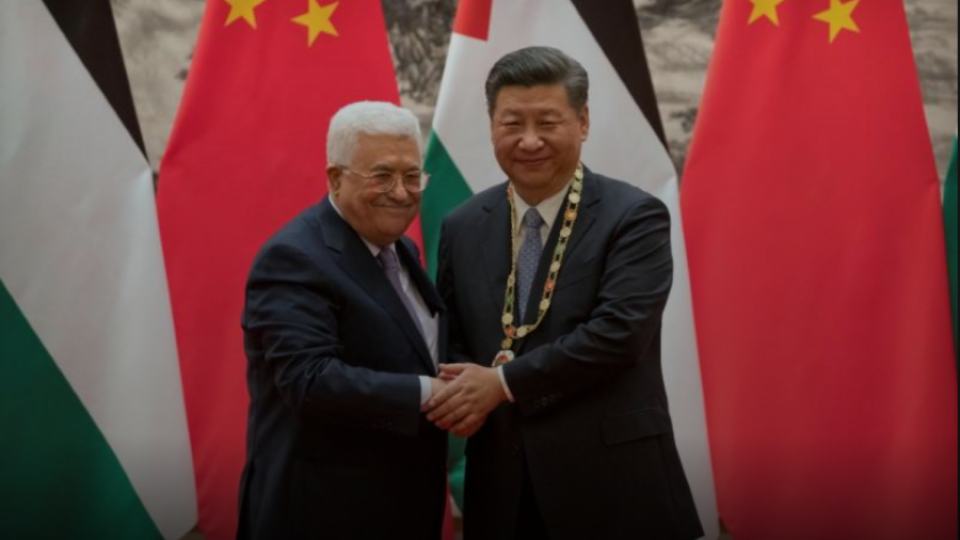June 14, 2023
BEIJING – Ties: Nation earnestly facilitates peace in Middle East
Palestinian President Mahmoud Abbas arrived in Beijing on Tuesday morning to start his four-day state visit, becoming the first Arab head of state hosted by China this year.
Following the arrival of Honduran President Iris Xiomara Castro Sarmiento on Friday, Abbas is the second foreign head of state to visit China this week.
Scholars said that behind the large number of foreign leaders visiting China one after another is the country’s decadeslong, unchanged commitment to international justice and its constructive, peaceful role in tackling hot spot issues such as that of Palestine.
China was one of the first countries to recognize the Palestine Liberation Organization and the State of Palestine.
“Beijing is ready to work with Palestine to take the China-Palestine traditional friendly ties to a new height,” Foreign Ministry spokesman Wang Wenbin said last week.
This year marks the 35th anniversary of the establishment of diplomatic relations between the two countries.
When meeting with Abbas in Palestine on June 5, Zeng Jixin, head of the Office of the People’s Republic of China to the State of Palestine, relayed President Xi Jinping’s greetings and noted that the two-way ties have achieved high-level development under the strategic navigation of the two heads of state.
China is ready to work with Palestine to further fulfill the consensus reached by the two heads of state and “advance cooperation in various fields”, he added.
Abbas spoke highly of President Xi’s initiatives and propositions on behalf of China for promoting the settlement of the Palestine issue, and he said he appreciates China’s consistent and staunch support for the just cause of the Palestinian people.
In 2019, China and Palestine launched the first round of negotiations on a free trade zone. Bilateral trade reached $158 million last year, a year-on-year increase of 23.2 percent.
Li Shaoxian, director of Ningxia University’s China-Arab Research Institute, said, “Abbas’ China visit will focus on two fronts — promoting the Palestine-Israel peace process and helping Palestine deal with its economic difficulties.”
Regarding the Palestine issue, Li noted that the mediation role played by Washington has shrunk in recent years, because “the United States is losing its unilateral command over the Middle East situation, and countries in the region such as Iran and Saudi Arabia have projected a rising sense of autonomy and self-reliance”.
In contrast, “China is a friend to both Palestine and Israel, so it can exert influence upon both sides while remaining impartial and objective”, he said.
Wu Bingbing, director of Peking University’s Center for Middle Eastern Studies, voiced his hopes that China could introduce more hope, changes and options for the peaceful settlement of conflict in the Middle East, as the Palestine issue has lingered for nearly 100 years.
“Resolving the Palestine issue requires dealing with various countries in the Middle East region, and it means greater difficulty in achieving a balance among parties with vested interests,” he said.
“The Palestine issue remains the core issue in the Middle East region, and the settlement of other issues there will face constraints if the Palestine issue cannot achieve noticeable progress,” Wu added.
Niu Xinchun, director of the China Institutes of Contemporary International Relations’ Institute of Middle East Studies, said that in recent years, China has been earnestly facilitating peace in the Middle East.
“The major bottlenecks of the Middle East region’s security include the absence of a regional security mechanism, not to mention a multilateral dialogue platform (for regional security),” he said.
Chinese diplomats have proposed building a platform for the Gulf region for controlling and managing potential crises through collective consultation, and many Arab states have responded positively to the Global Security Initiative proposed by China last year, Niu added.


